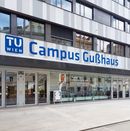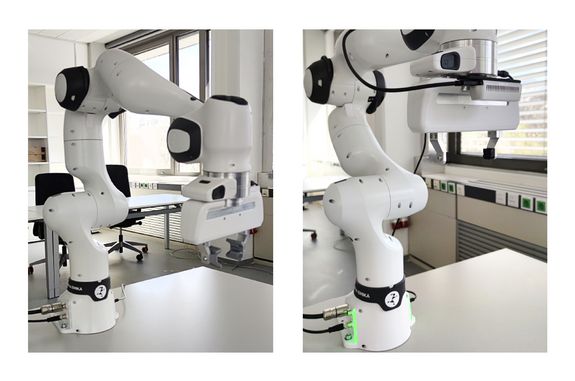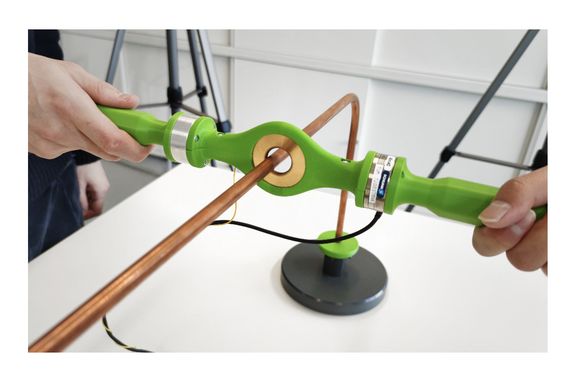The Autonomous Systems Lab, öffnet in einem neuen Fenster at the Institute of Computer Technology is currently recruiting participants who are 18-45 years old and have normal or corrected-to-normal vision. The studies research social interaction and collaboration between humans and robots. They will be collecting behavioral data, such as movements and decisions they make during experiments, without using any invasive measuring techniques. Participation is currently voluntary and takes approximately 1 hour.
What it is about
The project “Plasticity of body representations of self and other in collaborative tasks” (SOLAR) is part of the DFG (German Research Foundation) Priority Program “The Active Self”. It aims to understand how human and robot partners learn to coordinate with each other in tasks that require joint actions, such as lifting and moving an object. Initially, accurately predicting a partner’s movements can be challenging, as we tend to overgeneralize from representations such as our own body schema, which can lead to coordination problems. However, repeated exposure to a partner’s movement dynamics allows us to generate a representation of their body schema, enabling us to predict their movements more accurately and collaborate more effectively. This project investigates the plasticity of these self and partner representations, with a focus on collaborative learning in a simulated object transportation task, similar to the Hot Wire Game. We will use collaboration between humans as a benchmark and apply the same principles to human-robot collaborations. To test the quality of robotic control models, we will conduct a joint action “Turing test” in which participants will guess whether their robot partner was controlled by a human or acting autonomously.
Use the registration form, öffnet eine externe URL in einem neuen Fenster which includes more details about participation.
Contact:
Institute of Computer Technology, öffnet eine externe URL in einem neuen Fenster
Autonomous Systems Lab, öffnet in einem neuen Fenster
Lucija Mihic Zidar
lucija.zidar@tuwien.ac.at










